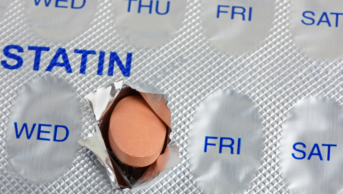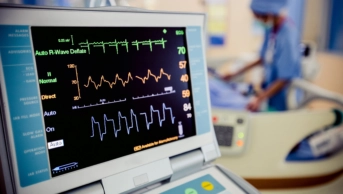
Shutterstock.com
Open access article
The Royal Pharmaceutical Society has made this article free to access in order to help healthcare professionals stay informed about an issue of national importance.
To learn more about coronavirus, please visit: https://www.rpharms.com/resources/pharmacy-guides/wuhan-novel-coronavirus

Source: Shutterstock.com
Misinformation spread on social media sites has sparked fears that taking certain medicines will increase the risk and severity of contracting the coronavirus
Patients taking angiotensin converting enzyme (ACE) inhibitors or angiotensin receptor blockers (ARBs) have been “strongly” advised to continue taking their medication amid fears that it could predispose them to adverse outcomes should they become infected with COVID-19.
In a position statement published on 13 March 2020, the European Society of Cardiology (ESC) said that initial reports from China and subsequent evidence had led to suggestions of a potential adverse effect of ACE inhibitors or ARBs in patients infected with COVID-19.
“It has been suggested, especially on social media sites, that these commonly used drugs may increase both the risk of infection and the severity of SARS-CoV2,” the position statement said.
“The concern arises from the observation that, similar to the coronavirus causing [severe acute trsiratory syndrome], the COVID-19 virus binds to a specific enzyme called ACE2 to infect cells, and ACE2 levels are increased following treatment with ACE [inhibitors] and ARBs.”
However, the ESC confirmed that there was no “sound scientific basis or evidence to support it”.
Paul Wright, lead cardiac pharmacist at Barts Health NHS Trust, said they had several patients and clinicians calling with concern regarding the social media take on these drugs.
“In essence, stopping these drugs is more likely to lead to harm,” he said.
“In addition, the link is based on a proposed mechanism whereby observations of COVID-19 suggest it binds to a specific enzyme called ACE2 to infect cells. ACE2 has also been found to be raised with ACE [inhibitor] and ARB use; however, there are limited clinical data to support the interaction and other postulated mechanisms of protection. Indeed, there is a plan to trial an ARB in patients with COVID-19.”
Wright added that the recommendations were for patients to continue with ACE inhibitors and ARBs.
“On a practical level, if patients were to swap, the clinical input required of checking blood pressure and potentially bloods of new agents in the currently stretched patient-facing services would probably expose them to a higher risk of catching COVID-19, as most areas are trying to minimise patient contact in the coming weeks and months.”
On 16 March 2020, the British Cardiovascular Society and the British Society for Heart Failure published a statement saying that patients should continue treatment with ACE inhibitors and ARB unless “specifically advised to stop by their medical team”.
Both societies recommended that patients taking these medicines who present as unwell, or with a suspected or known COVID-19 infection, should be assessed on an individual basis and their medication managed according to established guidance.
The Primary Care Cardiovascular Society has published an information sheet for patients regarding ACE inhibitors, ARBs and COVID-19 saying that it “strongly” supported the view that patients should continue on their medications as prescribed.
“As medical professionals we wish to highlight the lack of any evidence supporting harmful effect of [ACE inhibitors] and ARBs in the context of the pandemic coronavirus outbreak,” the information sheet said.
“We strongly recommend that patients should continue treatment with their usual therapy because there is no clinical or scientific evidence to suggest that treatment with ACE [inhibitors] or ARBs should be stopped because of the coronavirus infection.
“This applies to patients taking these drugs for heart failure, high blood pressure, diabetes or kidney disease.”
The sheet also highlights that inappropriate cessation of therapy could lead to a decline in control of blood pressure, heart failure or any other condition they take these medicines for.
Gino Martini, chief scientist at the Royal Pharmaceutical Society, said: “It has been speculated that ACE inhibitors or ARBs increase both the risk of infection and the severity of COVID-19.
“This speculation lacks the scientific evidence to support it and patients who are concerned should consult with their GP or pharmacist before making a decision to stop taking their medication.”
You may also be interested in

Diltiazem use with anticoagulants associated with higher risk of bleeding compared with metoprolol in older people, study finds

High-dose statins could be supplied by pharmacies without a prescription
